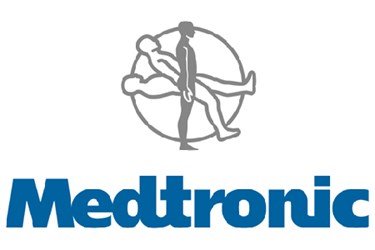FDA Approves Medtronic's Enlite Sensor For iPro2 CGM Systems

Medtronic announced that the FDA has approved the Enlite Sensor for its iPro2 continuous glucose monitor (CGM). The disposable sensor is can be worn 24 hours a day for up to six days, and both its insertion and wear have been found to be more comfortable than previous sensor models.
The iPro2 system, first launched in 2011, features a host of next-generation innovations and allows doctors to gain a better understanding of an individual’s experience with diabetes than A1C tests and standard glucose meter measurements, which only capture a moment in time. By identifying patterns in both hypoglycemic and hyperglycemic excursions over six days of the system’s use, doctors can better form a management strategy to suit an individual patient’s lifestyle.
In 2015, Medtronic launched the Pattern Snapshot for the iPro2 CGM. The new, simplified CareLink iPro report — which is presented on one page — includes easy-to-understand data regarding a patient’s glucose patterns, which can be used by doctors as a teaching tool. The Pattern Snapshot identifies the top three priority issues in a patient’s glucose profile and highlights potential causes and solutions.
“We fundamentally believe that to improve outcomes for people with diabetes, physicians need advanced insights to optimize therapy and people with diabetes need to understand the context behind glucose fluctuations to drive behavior change,” said Laura Stoltenberg, VP and GM of Non-Intensive Diabetes Therapies at Medtronic, in a recent press release.
With the most recent FDA decision, the iPro2 system will now be available with the Enlite Sensor, which is 69 percent smaller than previous Medtronic sensors and features an easier insertion process. Studies and surveys conducted with the Enlite found that 75 percent of patients found the sensor easy to use and 85 percent of users reported that the sensor was comfortable under the skin.
Stoltenberg added that advances like the Enlite sensor and Pattern Snapshot work toward the company’s focus of making CGM solutions that are easier for patients to manage.
“Both physicians and people with diabetes need easy-to-use systems which can provide actionable information,” said Robert Vigersky, medical director, Non-Intensive Diabetes Therapies at Medtronic. “Having six days of patient data permits robust pattern analysis for more accurate decision support.”
Medtronic recently announced the U.S. launch of its MiniMed 630G, the most recent development for the company’s MiniMed portfolio of insulin delivery systems integrated with smart technology. This most recent waterproof model builds on previous technology, and is used exclusively with the Contour Next Link 2.4 blood glucose meter from Ascensia.
In an effort to make diabetes management more collaborative between medtech companies, Medtronic has recently entered into collaborations with IBM Watson, Glooko, and Nutrino — giving patients access to more actionable data to aid clinical decisions. Senior leadership for Medtronic commented that data and analytics are the “cornerstone” of diabetes management.
Seeking Alpha reported in July that Medtronic’s product pipeline included more projected launches between 2015 and 2020 than it has in the past 15 years. Medronic filed a PMA application with the FDA earlier this year for its artificial pancreas, a fully closed-loop insulin delivery system.
